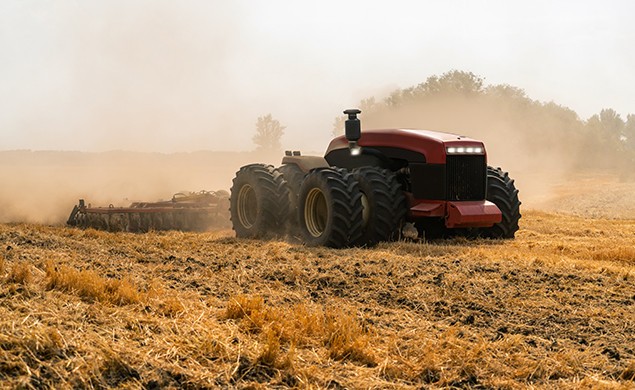Smart Agrifood presents artificial intelligence as a key tool for efficiency and sustainable development

The European Commission recently published a report entitled Artificial Intelligence in the Agri-food Sector, which analyzes the potential that artificial intelligence has in Europe’s agriculture and food industries. It is expected that in the EU, investment in artificial intelligence technologies for these industries will reach €4.9 billion in 2025, representing a 25% increase.
With the aim of providing a forum for discussing these topics, the European Foundation for Innovation (INTEC) recently organized the International Congress for Artificial Intelligence Applied to the Agrifood Chain, which was held in Spain at the University of Córdoba. In addition to that Foundation, the event’s organizing committee also had members representing the Córdoba Municipal Institute for Economic Development and Employment (IMDEEC); the Spanish Ministry of Agriculture, Fisheries and Food; the regional government of Andalusia’s Ministry of Universities, Research and Innovation; the University of Córdoba; the Córdoba provincial government; and around 20 private-sector companies, including GMV.
During the session entitled “Artificial Intelligence, Logistics, and the Agrifood Supply Chain: From Farm to Table”, Miguel Hormigo, Manager of GMV’s Industry sector, explained how robots and automated systems are now being used in the agrifood sector for crop cultivation, harvesting, and processing, making all of these operations more efficient and sustainable.
The agrifood sector is in the midst of a transformation similar to those being experienced in other industries, which may have started off with digitalization, but which is now affecting every process, while also generating new business models that can improve productivity, competitiveness, and sustainability. We are a leading company in terms of applying technologies to a wide range of specialized industries, but we also recognize the potential to advance much further by defining medium-term and long-term strategies, and by incorporating agile methodologies. These make it possible for us to perform relatively small projects and proof of concept work, to study various solutions and find the ones best adapted to our needs.
Currently, we are all experiencing a whirlwind of new technologies that are now coming within our reach, led by artificial intelligence as the central axis around which many others revolve (IoT, 5G, robotics, advanced analytics, etc.). This makes it important to be clear about the advantages AI could present when applied to our specific case, while also staying focused on where we are trying to go.
The Congress brought together top professionals at the international level, along with industry leaders and agriculture experts. The common aim was to encourage progress in relation to the transformative potential of AI, for application throughout the entire agrifood chain: production, processing, logistics, distribution, and hospitality.
This event provided a space for presenting and discovering the latest innovative solutions, disruptive technologies, and emerging business models. The purpose of the Congress has been to encourage widespread implementation of artificial intelligence within the food and agriculture chains, in order to promote sustainable growth, food security, overall wellbeing for our society, and technology transfer from the universities into industry, and it was made clear that this must be done quickly, at a faster pace than the one we have been seeing up until now.